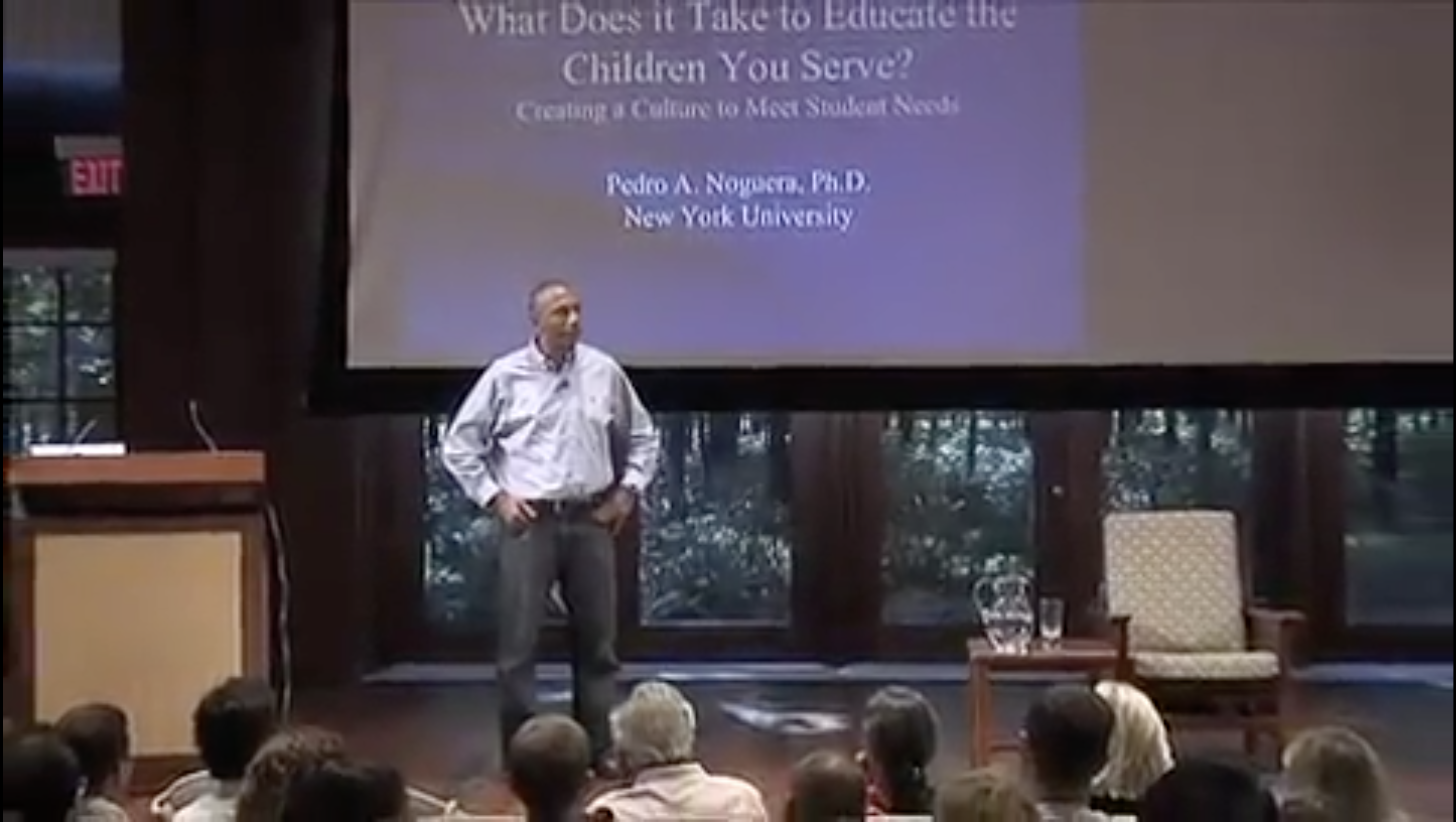Pedro Noguera at Ross School – Part 2
In 2009, Dr. Pedro Noguera, distinguished professor of education at University of California, Los Angeles, and renowned education scholar and activist, spoke on the topic of school culture and how cultural differences should be acknowledged and addressed in the classroom. Below is an excerpt from his presentation.
“THERE’S ALWAYS BEEN ONLY ONE PURPOSE TO EDUCATION . . . TO PREPARE YOUNG PEOPLE TO BECOME RESPONSIBLE ADULTS.”
When I worked at Harvard, I collaborated with Ron Heifetz, who was part of the Kennedy School of Government with the Center for Public Leadership. He and I were asked to design a program to train superintendents around the country. Most of Ron’s work was with elected officials and business leaders, but I was familiar with his work within the context of education. I’m specifically referring to his book Leadership on the Line, which I think is directly relevant to the work we do in education, [in which he describes] the distinction he draws between what he calls “technical work” and “adaptive work.”
Technical work is the business of being in compliance with rules and procedures. If you are focused on assessment, it’s making sure that you assess those kids according to the law that states which standards need to be covered. If you’re in a leadership role, it’s important to make sure that there’s heat in the building, that the kids are fed, and that you have certified people in your classroom—if that’s what the law requires—because running a school is running a complex organization.
That’s the technical work. It’s the essential work, because without it, these complex organizations don’t function. But none of that work is about whether our kids are actually engaged in learning, whether or not they’re excited about being there, whether or not they’re stimulated, whether or not they’re motivated, whether or not they understand the larger purpose of education, or whether or not you know how to reach them.
My colleague, Debbie Meier, founded a school in Central Harlem called Central Park East, and although she’s 83 years old, she continues to be very active in the field. I asked her to come to visit and speak to my students one day, and one of the students asked a question: “What’s the purpose of education?” She very quickly said, “There’s always been only one purpose to education in all countries at all times, and that is to prepare young people to become responsible adults.”
If they get into the best colleges but they rob banks, we failed. Education, when successful, should teach people how to live, how to make responsible decisions—which means it’s not simply about how well they do academically by conventional measures, because the social and the emotional aspects of learning are also so essential.
My father, who was a cop in New York City for 27 years, liked to say, “Common sense really isn’t that common.” How do you educate people for common sense, for social and emotional intelligence, all of which are really important for being prepared for the world we live in?
The “adaptive work” that Heifetz talks about is the work that requires constant reflection, because it is work being done in a complex environment. It is the work the makes us ask ourselves questions about whether or not we’re meeting the needs of the children we work with, because preparing them for the world out there is not a simple task. You don’t achieve that simply by being in compliance with regulations and standards.
Click here to watch or read a transcript of Pedro Noguera's full presentation to Ross faculty.
Posted by Archive



